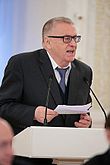Russian legislative election, 1999
|
|
|||||||||||||||||||||||||||||||||||||||||||||||||||||||||||||||||||||||||||||||||||||
|---|---|---|---|---|---|---|---|---|---|---|---|---|---|---|---|---|---|---|---|---|---|---|---|---|---|---|---|---|---|---|---|---|---|---|---|---|---|---|---|---|---|---|---|---|---|---|---|---|---|---|---|---|---|---|---|---|---|---|---|---|---|---|---|---|---|---|---|---|---|---|---|---|---|---|---|---|---|---|---|---|---|---|---|---|---|
|
|||||||||||||||||||||||||||||||||||||||||||||||||||||||||||||||||||||||||||||||||||||
|
All 450 seats to the State Duma 226 seats needed for a majority |
|||||||||||||||||||||||||||||||||||||||||||||||||||||||||||||||||||||||||||||||||||||
| Turnout | 61.7% | ||||||||||||||||||||||||||||||||||||||||||||||||||||||||||||||||||||||||||||||||||||
|
|||||||||||||||||||||||||||||||||||||||||||||||||||||||||||||||||||||||||||||||||||||
|
|||||||||||||||||||||||||||||||||||||||||||||||||||||||||||||||||||||||||||||||||||||
Gennadiy Seleznyov
Communist Party
Gennadiy Seleznyov
Communist Party
Parliamentary elections were held in Russia on 19 December 1999. At stake were the 450 seats in the State Duma (Gosudarstvennaya Duma), the lower house of the Federal Assembly of Russia. According to the 1993 electoral law, 225 members of the house were allocated proportionally, using statewide party lists, while other 225 members were elected in single-member constituencies, using first past the post system. Like in the previous election, this system resulted in a large number of parties competing for the proportional seats, as well as a significant number of independent deputies elected.
To secure a place on the ballot, parties had to have registered with the Russian Ministry of Justice one year before the election (instead of six months in previous elections). As an alternative to gathering 200,000 signatures, they had the option of paying a deposit of just over two million roubles, returnable if the party won at least 3.0 percent of the list vote. In order to increase proportionality, the law provided that if parties reaching the five per cent threshold got in total 50 per cent or less of the vote, parties with at least 3.0 per cent of the vote would also win seats by declining numbers of votes up to the point at which the total share of vote exceeded 50 per cent. However, if after this procedure the parties winning seats still had less than 50 per cent of the vote, the election was to be deemed invalid. In the single-member district ballots, if votes cast against all exceeded the votes of each candidate, a repeat election had to be held within four months. As a result, repeat elections had to be held in eight districts. Finally, as an alternative to gathering signatures in support of their nomination, single-member district candidates were also given the option of paying a deposit of 83,490 roubles, returnable if she won at least 5.0 percent of the district vote.
...
Wikipedia






